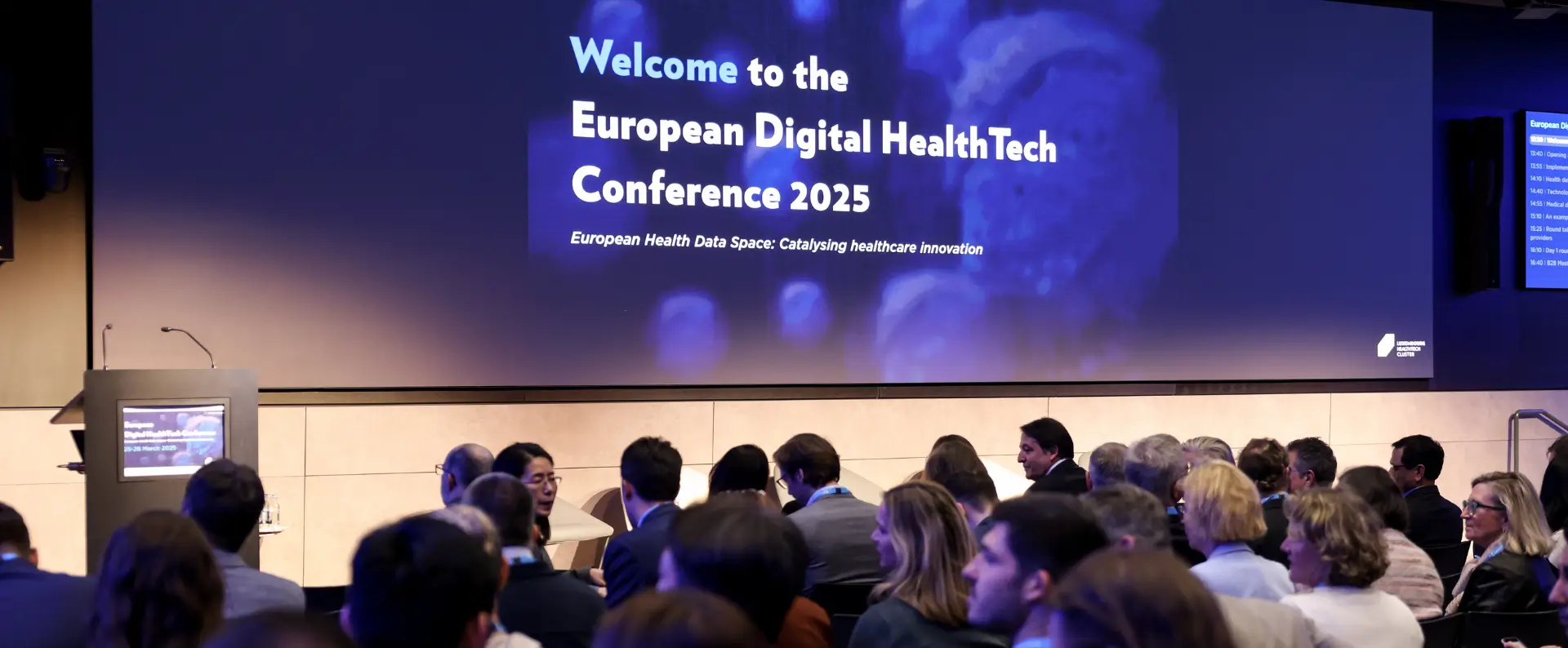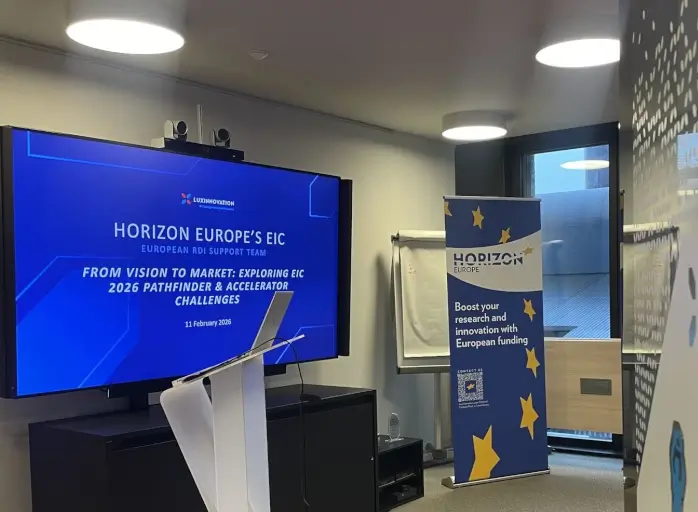

Why the European Health Digital Space matters
The European Health Data Space promises to unlock seamless healthcare across borders, enable breakthrough research and innovation, and empower AI-driven innovations.
 Lena Mårtensson
Lena Mårtensson
In an era where technology is reshaping industries at an unprecedented pace, healthcare is on the brink of a digital revolution. The pioneering European Health Data Space (EHDS) aims to establish a common framework for the use and exchange of electronic health data across the EU. But while the opportunities are vast, so are the challenges. At the European Digital Healthtech Conference 2025, 300 participants from 35 countries – companies, researchers, healthcare specialists and policymakers – gathered in Luxembourg on 25-26 March to explore how EHDS can reshape the future of healthcare in Europe.
We are not yet there – but we have all the ingredients that should allow us to build a performing healthcare system across Europe.
Mario Grotz, Luxinnovation
Mario Grotz, CEO of Luxinnovation, presented a vision of predictive, preventive, personalised and participatory medicine that places the patient at the centre when opening the event, organised by Luxinnovation in collaboration with Medical Valley and EIT Health. “We are not yet there – but we have all the ingredients that should allow us to build a performing healthcare system across Europe,” he emphasised.
Digital health innovation revolutionising patient care
Digital solutions are already changing the lives of thousands of patients across Europe. Hospital Sant Joan de Déu in Barcelona has put in place a remote real-time monitoring system allowing severely ill children to remain at home with their families, while being under the constant surveillance of medical experts. “The data collected is also used for prediction and strategic decision making to better manage our resources,” Hernan Elias Lew, Deputy director of the Digital Strategy and Data Department, pointed out.
Charles-Eric Winandy, co-founder and director of digital health platform developer MoveUP, presented the first health app measuring the correlation between well-being and physical activity to be reimbursed by the Belgian social security system. “Conventional care leaves blind spots in-between the consultations. A digital 24/7 monitoring tool bridges the gaps between consultations, helping doctors understand why some patients recover well while others struggle,” he said.
User-friendly solutions needed for high-quality data
However, implementing such tools comes with several challenges. Doctors and other healthcare professionals have to change their way of working, which can be complicated. “When meeting a patient, we must in very short time make sense of a complex situation,” said Fabien Cipriani, co-founder of electronic health record developer eSklepios, who is also a practicing medical doctor. “Digital tools must be easy to use and provide outcomes that make it worthwhile to invest the time to fill them out correctly.”
Digital tools must be easy to use and provide outcomes that make it worthwhile to invest the time to fill them out correctly.
Fabien Cipriani, eSklepios
Ultimately, the tools should liberate time that healthcare staff can spend caring for patients, rather than doing administrative tasks. Speakers underlined the importance of involving healthcare professionals at an early stage to make sure that digital solutions meet their needs. The ergonomics of the interface to be used by patients are also crucial, as the quality of data collected outside the hospital environment will be strongly dependent on their ability to handle the tool correctly and easily.
Unlocking health data for research and innovation
The full value of the information generated through healthcare delivery is realised when the data is reused for research and innovation purposes. Here, the EHDS is key as it will provide a framework for structuring data and making it interoperable, accessible and transferrable – also across borders. The data governance to be implemented should also significantly reduce the time needed for researchers to get the permission to access and use health data.
“For a startup like us, the EHDS will offer the opportunity to access datasets in a more cost-effective way to create proofs of concept or minimum viable products before spending large amounts of money,” said Arianna Arienzo, CEO and co-founder of VoiceMed, a Luxembourg startup focusing on vocal biomarkers. However, she pointed out that when the EHDS makes data generally available, competition between companies innovating in the same field will also increase.
For a startup like us, the EHDS will offer the opportunity to access datasets in a more cost-effective way to create proofs of concept or minimum viable products before spending large amounts of money.
Arianna Arienzo, VoiceMed
Another challenging point is how the implementation of the EHDS is handled by the different EU member states. “The secondary use of real-world data has a huge potential to enhance healthcare, but multiple regulations and extreme caution often prevent using it to its maximum extent,” said Mr Winandy.
“The legislation gives member states a lot of freedom, so there is still a risk that lack of harmonisation will block interoperability of data from different countries,” said Karen Crabbé, Economic and Health Data Advisor at pharma.be, the umbrella association of the innovative pharmaceutical industry in Belgium. “We have asked the Belgian government not to add any extra layers of complexity but to make the EHDS implementation as research friendly as possible.”
Seizing innovation opportunities in Luxembourg
The efficient implementation of the EHDS ties in well with the Luxembourg government’s ambition to promote research on personalised medicine development. “Precision medicine cannot exist without data,” underlined Stéphanie Obertin, Minister for Digitalisation and Minister for Research and Higher Education, when concluding the European Digital Healthtech Conference. “The Ministry for Research and Higher Education is fully committed to discussing and collaborating actively with healthcare professionals, scientists, startups and innovators to create trusted ecosystems around health data that put patients in the centre.”
Luxinnovation is available to support Luxembourg companies innovating in the field of digital health. “The potential for digital health innovation is enormous, both when it comes to tools for the direct, primary use of data in healthcare and to new solutions based on secondary data use,” says Jean-Philippe Arié, Healthtech Cluster Manager at Luxinnovation. “Companies interested in exploring this further and those looking for expertise, partners or R&D and innovation funding are welcome to contact us.”
Photo credits: Luxinnovation/Sophie Margue







